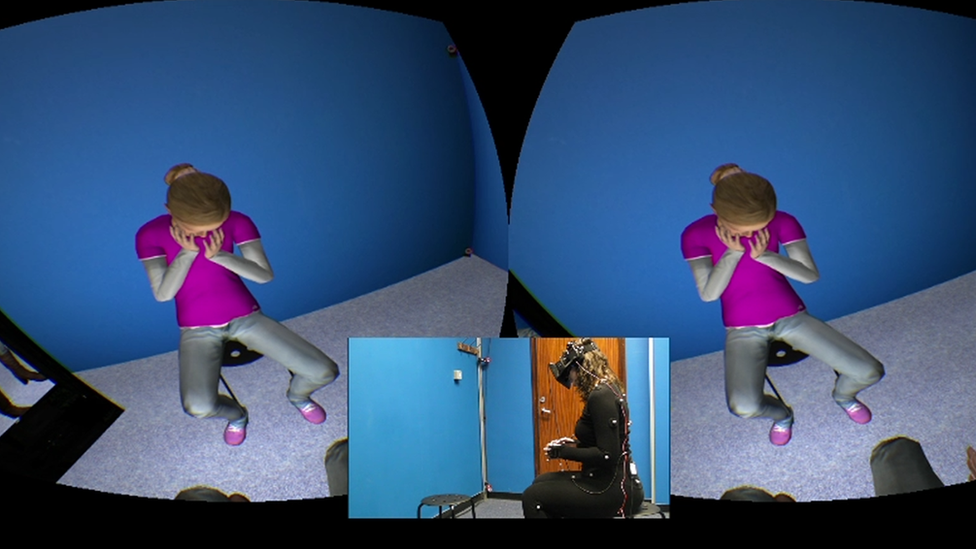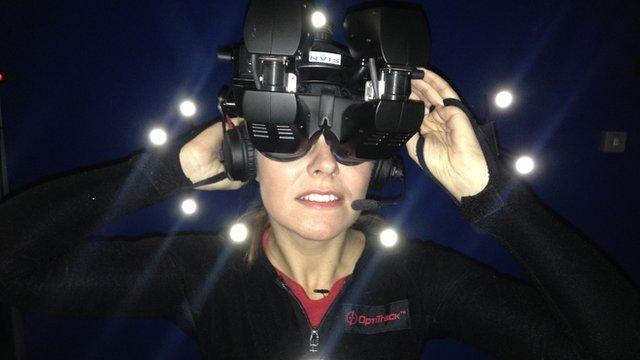Virtual therapy 'helps with depression', researchers say
- Published

A new therapy which involves a patient embodying themselves in a virtual reality avatar of a crying child could help with depression, research has suggested.
Patients wear a headset that projects a life-sized image, firstly of an adult and then of a child.
The new research tested the technology for the first time on patients with a mental health problem.
The project is part of a continuing study at University College London.
The university, which is working in collaboration with ICREA-University of Barcelona, has suspected for several years that virtual therapy could help with mental health conditions.
This latest research - which has been published in the British Journal of Psychiatry Open, external and was funded by the Medical Research Council - lays the basis for a large-scale clinical trial to be carried out in the future.
Compassionate phrases
The study took 15 people who were all being treated by the NHS for depression and put them through the avatar experience.
Firstly, the patients - 10 of whom were female and the rest male - put on a headset which projected an adult version of themselves into a virtual reality mirror.
The patient was asked to mentally identify with the adult avatar, which exactly replicated the patient's body movements, in a process known as "embodiment".
They then noticed a separate avatar of a small crying child, who was also in the mirror.
They were told to say compassionate phrases to the child to try and comfort and console it.
Patients asked the child to think of a time when it was happy, and to think of someone who loved them.
At this stage of the experiment the roles were then reversed.
The scientists altered the headset and the patient was then embodied into the avatar of the child - which then copied the patient's own body movements.
The participants then heard the same phrases of compassion spoken back to them from the adult avatar in the person's own voice.
Claudia Hammond met Dr Caroline Falconer and took part in her virtual reality experiment in 2014
Lead author Prof Chris Brewin said the results were promising and patients had described the experience as "very powerful".
Of the 15 patients, aged between 23-61, nine recorded reduced levels of depression one month after the trial.
And four of those nine reported "a clinically significant drop in depression severity".
The rest recorded no changes.
The avatar sessions typically lasted for 45 minutes and the patients were given three sessions.
Prof Brewin said he believed the effects of the treatment could last for up to a month.
"People who struggle with anxiety and depression can be excessively self-critical when things go wrong in their lives," he said.
"In this study, by comforting the child and then hearing their own words back, patients are indirectly giving themselves compassion. The aim was to teach patients to be more compassionate towards themselves and less self-critical."
Co-author Prof Mel Slater added: "We now hope to develop the technique further to conduct a larger controlled trial, so that we can confidently determine any clinical benefit."

In the Mind - a series exploring mental health issues

More:, external BBC News special report (or follow "Mental health" tag in the BBC News app)

- Published19 November 2014
